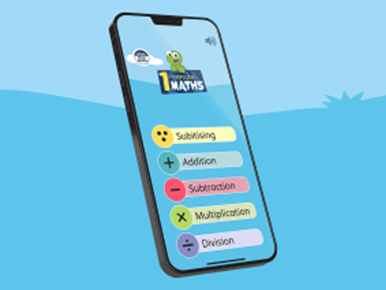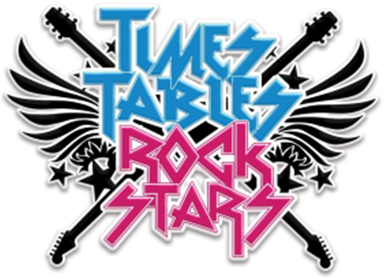The Duchy School
Home Learning
Homework 2023-2024
Background
The homework debate is never much out of the news! Should homework be banned? Is homework at primary school a waste of time? Do children get too much homework? Last year, we canvassed the views of our parents in relation to homework and have worked as a staff to develop a set of homework principles that take account of these views. Our new approach aligns with recommendations (based on extensive research) from the Educational Endowment Foundation, which is an independent educational body that supports educational development of all children.
Rationale
First and foremost, we believe that homework is an opportunity for parents/carers to become active partners in supporting learning. Homework can help promote a positive attitude to learning at home and show children that home and school are working together in partnership. We believe that homework should be enjoyable for the child and should stimulate imagination and creativity, reinforce lessons taught in school and give the opportunity for applying learned skills.
Our homework approach is broken down into two key elements:
· Desirable
· Essential
Desirable Homework
It is our view that there are many ways to support learning at home: going for a walk and chatting about what can be heard/seen; baking; gardening; art and craft and taking part in sports are just a few. We encourage all our parents to support their children through these conversation-rich activities wherever possible.
Each term, we produce a Class Curriculum Overview sheet which acts as a handy guide to what the child will be learning about. Any enrichment opportunities parents can provide linked to these themes (to help make the subjects and topics children are learning about at school more meaningful, memorable, and rewarding) will be of immense benefit. We welcome any thing being brought into school which can then be shared with classmates.
Essential Homework
Research tells us that when children reach ‘automaticity’ in a skill (i.e. they can just do it), this frees up their ‘working memory’ to think about the bigger picture. If children can read fluently, they can concentrate on the meaning of the text. If children know their times tables inside out, they can use these to more easily carry out other calculations. If children know their spellings, they can concentrate on choosing which words to use, rather than focusing on how to spell them. We know from cognitive research that the more often a skill is practised, the more embedded it becomes – this is where the expression ‘practice makes perfect’, or, more accurately, ‘practice makes permanent’, comes from. Essential homework activities will consist of learning in the core subject areas which are further outlined in this booklet.
Essential Reading— Read Write Inc Phonics
Reading is key in accessing the whole curriculum and fostering success. Listening to your child read daily, as well as reading with and to them, are invaluable, and should be recorded in your child’s reading record.
Read Write Inc. books
Children will bring home Read Write Inc. books which align with the phonics sounds that they are being taught. They will bring a storybook; they will have read this book with an adult and a partner a minimum of three times in school before bringing it home to share. Please don’t say, ‘This is too easy.’ Instead, encourage your child to tell you the story out loud, ask them questions about things that happen or what they think about some of the characters in the story. You can also ask them to show off their ‘storyteller voice’, to express how characters are feeling.
Bookbag books
Children will also bring home bookbag books – supplementary books which include learned sounds and misconception words and provide an excellent opportunity for reading skills to be practised. You can help your child to sound out the letters in words and then to ‘push’ the sounds together to make a whole word. Try not to refer to the letters by their names but help your child to focus on the sounds. You can hear how to say the sounds correctly via this link
https://ruthmiskin.com/parents/
Essential Reading— Accelerated Reader
Children who have completed our targeted phonics scheme move on to choosing books that appeal to them from an assessed and appropriate challenge level, using Accelerated Reader (AR). As children progress with their reading, there is a greater emphasis on their understanding and comprehension of the text. Listening to your child read, as well as reading with and to them, remain invaluable, and should be recorded in their reading record. Once a text has been read, children can demonstrate and build their comprehension skills by completing a quiz linked to the text. It is important that children read and understand the whole book prior to completing a quiz on it.
Quizzes can be completed at home using the following website:
http://global-zone61.renaissance-go.com/welcomeportal/2236345
Children will also be provided time to do this in school daily. Quizzes are taken in a quiet and focussed environment with the text in question at hand to be referred to. Children’s login details for AR are in their reading record books. Class teachers monitor reading levels and quiz results and may support children in returning to a text or quiz when necessary.
Some texts have a vocabulary quiz which you may like to complete at home, to further explore the meaning of words in context. Children might also choose to read non-fiction articles, available on their AR account. A text that you’ve shared together, or which has come from a community library, may have an AR quiz linked to it. if you would like to, you can use the AR book finder website to check and find the quiz number.
Essential Spelling
As part of our new whole school spelling scheme, the children are sent home coloured spellings, which can be found inside their reading records, based on their spelling assessments which take place regularly. These are common misconception words and words linked to taught patterns and rules.
Regular short bursts of practise at home really help children to make accelerated progress. We encourage practise at home using ‘look, say, cover, write, check’, or use of flashcards or memory games. Children can let their class teacher know when they feel they are ready to be tested on their current spelling words in school. When they are ready, they can progress to the next colour level.
| Level | Set of coloured cards |
| 1 | White, Red and Green words |
| 2 | Purple and Pink words |
| 3 | Orange and Yellow words |
| 4 | Blue and Grey words |
| 5 | Gold and Platinum words |
Essential Maths
We understand that many parents feel like maths has changed and that it’s sometimes difficult to keep up to date with modern teaching methods. At The Duchy School, we follow the White Rose Maths scheme of learning. This approach fosters a deep and sustainable understanding of maths through its emphasis on mastery. The Parents & Pupils section of their website is brimming with videos, materials and activities to help your child to learn and enjoy maths at home.
https://whiteroseeducation.com/parent-pupil-resources/maths/
Useful apps
White Rose Maths

White Rose’s 1-minute maths app helps children build greater number confidence and fluency. It’s all about targeted practice in engaging, one-minute chunks!
Times Tables Rock Stars

Times Tables Rock Stars is a maths programme that takes all the worry out of learning times tables and has a proven track record of boosting children’s fluency and recall in multiplication and division. Your child will have their own school account from the summer term in year 2.
